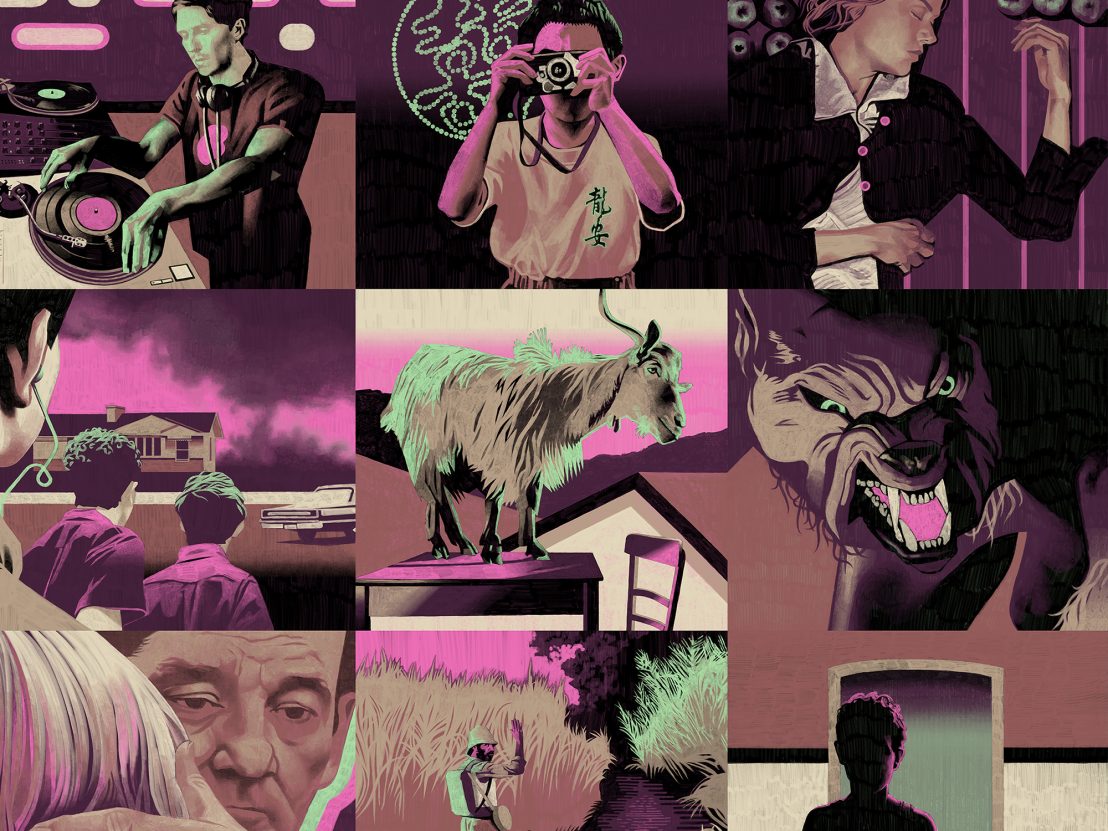
In an ambitious venture, we count down our favourite wholly-original feature films of the last two decades.
At the beginning of 2022, industry operator and LWLies contributor Josh Slater-Williams made a pithy comment on social media in response to a list of the top 30 box office earners of 2021. He noted that only four films on the list were not based on existing intellectual property – and one of those films was the low-balling Ryan Reynolds vehicle Free Guy, which references a lot of existing IP as part of its story and production design.
So that’s 26 of the top 30 films of 2021 – top in the sense that people were going to the cinema in droves to see them – all either sequels, remakes, refits, literary adaptations, musical adaptations, spinoffs, franchise extensions or, in the case of Jungle Cruise, based on the popular theme park ride of the same name.
Piggybacking on existing IP – or, as it’s thought of in the industry, serving content to a pre-existing fanbase – is as old as the hills when it comes to the Hollywood industrial complex. That’s not to say that this mode of filmmaking inherently yields negative results, as among that top 30 there are a handful of indisputable bangers.
Yet it’s hard to feel there’s not something wrong when an artform is at a place in its evolution where originality offers scant financial recompense, and those with the commissioning power are risk-averse to the point where we’re careening into a glossy monoculture in which newfound progressive ideals are being buried in endless reams of give-the-people-what-they-want candy floss.
In response to that list, we offer up the results of a poll surveying the best films of the 21st century – the catch being that every single one is a true original and was put out in the world in the hope that an audience would crave something different, and not more of the same.
Personal top 10 lists were supplied by the following contributors: Ege Apaydin, Mark Asch, Marina Ashioti, Anton Bitel, Anna Bogutskaya, Charles Bramesco, Cheyenne Bunsie, Anna Cale, Jake Cole, Philip Concannon, Lillian Crawford, Nicole Davis, Isaac Feldberg, Emma Fraser, Patrick Gamble, Katie Goh, Rōgan Graham, Steph Green, Glenn Heath Jr, Tom Huddleston, Pamela Hutchinson, David Jenkins, Trevor Johnston, Ariel Kling, Aimee Knight, Michael Leader, Saffron Maeve, Emily Maskell, Katherine McLaughlin, Ben R Nicholson, Caitlin Quinlan, Rafa Sales Ross, Fatima Sheriff, Josh Slater-Williams, Hannah Strong, Matt Thrift, Lou Thomas, Matt Turner, Sydney Urbanek, Laura Venning, Greg Wetherall, Sam Wigley, Brianna Zigler
Directed by Peter Strickland
If 2012’s Berberian Sound Studio announced filmmaker Peter Strickland as a maker of metaphysical horror doodles that skirt on the extreme boundaries of genre, then 2014’s The Duke of Burgundy doubles down on that intent. Here he draws on ’70s softcore – those porn epics that actually had a plot! – to tell of a sadomasochistic relationship between two women, set in a world populated entirely by women. A dazzling one-off, and a dark jewel in the corpus of one of the UK’s most consistently idiosyncratic dreamweavers. David Jenkins
Directed by Michael Haneke
An affluent couple besieged by a videotape stalker are siphons for Michael Haneke’s incisive interrogation of colonialism and the historical, some might say wilful, amnesia of European society. Partly inspired by the 1961 Paris massacre which saw as many as 200 Algerian protesters slaughtered by the Sûreté Nationale (an event referenced by Daniel Auteuil’s character), Hidden has been described by its director as an example of how collective guilt can be connected to a personal story. Adam Woodward
Directed by Charlie Kaufman
In Charlie Kaufman’s ever-expanding autumnal epic, a playwright’s middle-aged crisis spirals into a neurotic quest for self through reflexive art. Yet in staging his own life as an impossibly all-inclusive drama, melancholic Caden Cotard (Philip Seymour Hoffman) is confronted with his own loneliness, mortality and insignificance in a vast, indifferent universe. The results are a sprawling anxiety dream of the human condition – profound, sophisticated and dizzyingly bleak. Anton Bitel
Directed by Greg Mottola
There is no better work of modern cinema that captures mid-to-late 2000s adolescence than Seth Rogen and Evan Goldberg’s grandiose retelling of their high school experiences, led by Jonah Hill and Michael Cera. The beauty of Superbad is that it pulls no punches – it is as caustic, offensive and uncomfortable as teen life tends to be. But what makes the film is that it is deeply empathetic, revealing a gooey centre of juvenile male friendship. Brianna Zigler
Directed by Damien Chazelle
Damien Chazelle’s electrifying examination of artistic ambition is an intense psychological drama that pushes a young jazz student and the nerves of its audience to the absolute limit. Resisting the laziness of binary ‘good’ and ‘evil’, Whiplash is instead a skillfully crafted character study that deconstructs the notion of excellence. As the utterly terrifying Terence Fletcher, JK Simmons’ delivers a malevolent mentor for the ages. Cheyenne Bunsie
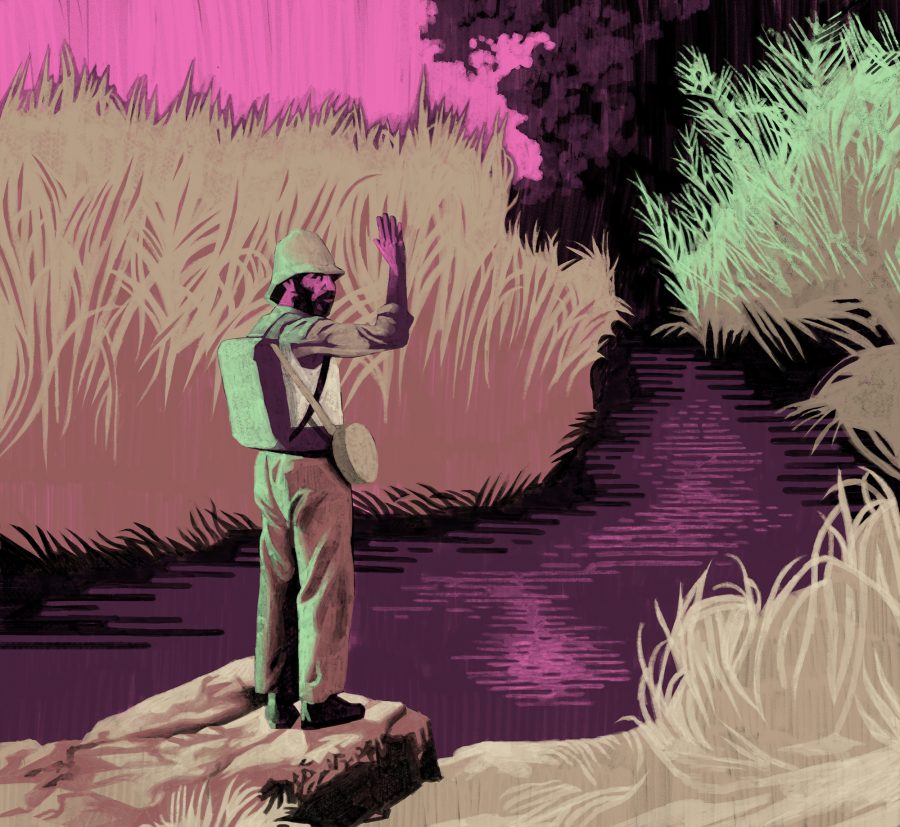
Directed by Miguel Gomes
Great things were expected from Portuguese filmmaker Miguel Gomes following his extraordinary docu-fiction hybrid, Our Beloved Month of August, from 2008. What we have with Tabu is a work which both expands on an exciting cinematic project and exceeds expectation. This diptych sees the estranged lover of an elderly Lisbon dowager tell of their youthful Cape Verdean love affair while she lays dying. Eccentricity and earnestness have rarely been seen as such close bedfellows in this classically-tinged romantic epic. DJ
Directed by Pete Docter
The Pixar MO of creative brilliance paired with sweeping emotional heft is on full display as the personified emotions of an 11-year-old girl come together to help her cope with life in a new city. An intricate imagining of what shapes a personality teamed with a simple, relatable narrative, Inside Out is a tear-jerking and visually absorbing psychological comedy. It won an Oscar and more than stands up to such Pixar giants as Toy Story and Up. CB
Directed by Kim Ki-duk
Set in and around a monastery on a remote lake, Kim Ki-duk’s sublime feature traces the seasons of a man’s life in a floating world – from wanton boy to criminal young man to devout adult. Disarmingly simple and deeply spiritual, this is all at once Buddhist parable, humanist fable and universal allegory, never shying away from life’s cruelties while carefully initiating the viewer into something akin to religious experience. ABit
Directed by Hayao Miyazaki
Best described as a dream, Spirited Away presents a unique world that feels open and takes you on the bizarre tangents of adventure. Hayao Miyazaki raised the bar for accessible animated storytelling that doesn’t patronise its audience, as every character is visually iconic and/or imbued with metaphor, from the pollution of the River Spirit, to the materialism and over-consumption of No-Face. The beats of the story follow the beat of their own drum, which can’t be said for so many cookie-cutter children’s tales nowadays. Fatima Sheriff
Directed by Apichatpong Weerasethakul
Apichatpong Weerasethakul’s languorous second feature was brought to international attention when it won the Un Certain Regard prize in Cannes. Festivals are a force for good when it comes to the advocacy of films that are not ripped from existing IP sources, and the Thai maestro set the template for his searching, whimsical, humanist mode with this bucolic tale of a love affair between a young woman and her ailing, illegal immigrant boyfriend. DJ
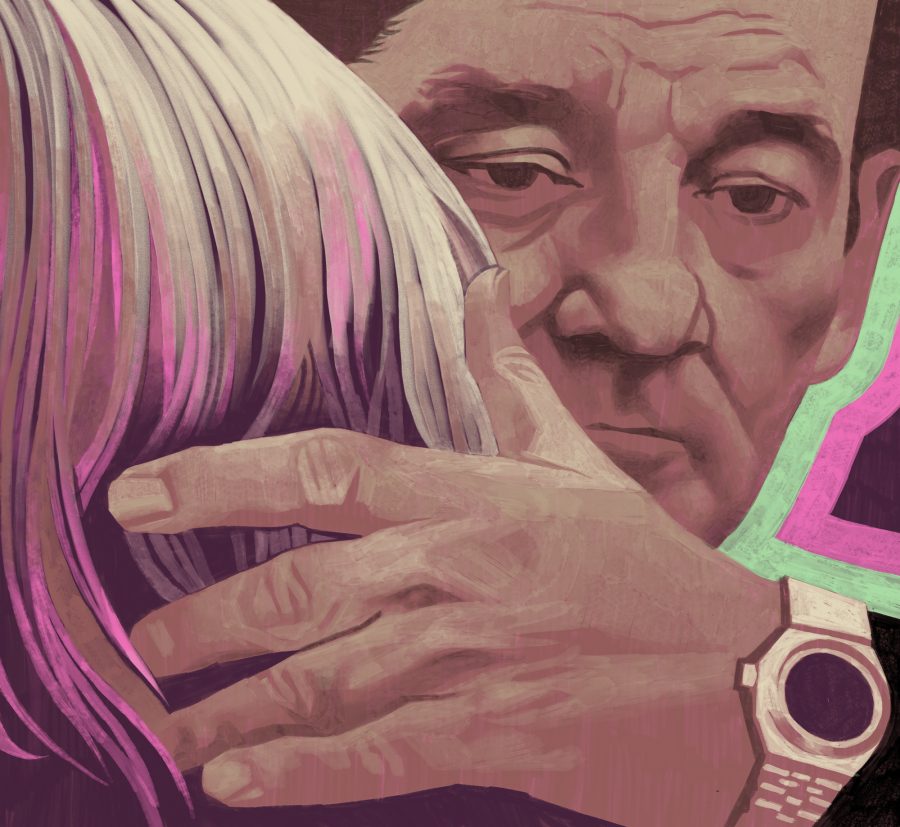
Directed by Sofia Coppola
While many of Sofia Coppola’s films are based on pre-existing material, the originality of Lost in Translation resulted in her only Oscar to date for its screenplay. Like In the Mood for Love, the film follows a ‘brief encounter’ romantic structure that threatens its characters and audience alike with the pangs of dispriz’d love. With a soundtrack featuring The Jesus and Mary Chain and Peaches, it’s impossible not to fall for. Lillian Crawford
Directed by Joel and Ethan Coen
The Coen brothers’ ballad of a beleaguered musician tips its hat to various real-life figures from Greenwich Village’s now legendary folk scene, most notably Dave Van Ronk; it even ends with a cameo-of-sorts from a certain harmonica playing troubadour. Yet while the film wears its influences on its cigarette-burned sleeve, there’s always the sense that the Coens are adding something new to the Great American Songbook rather than merely strumming a familiar tune. AW
Directed by Claire Denis
Claire Denis has gone on record as saying that this gorgeous, lilting 2008 film was inspired by Yasujirō Ozu’s Late Spring from 1949 – but don’t call it a remake. Denis and her regular co-screenwriter Jean-Pol Fargeau co-opt a loose, near imperceptible framework of the Japanese classic and make this story, of a father feeling the pangs of melancholy about his daughter growing up and moving away from him, entirely their own. DJ
Directed by Lucrecia Martel
In the spirit of the great Spaniard Luis Buñuel, Argentine filmmaker Lucrecia Martel carries on a grand tradition of sticking it to the banal complacency of the bourgeoisie but does so with tragic empathy rather than withering satire. A middle-class matriarch accidentally drives over something while scrambling for her phone and, thinking it was a stray dog, just carries on with her life. But this moment causes a strange, temporary rupture in her being, and Martel uses her film to channel a warped perception of the everyday. DJ
Directed by Terrence Malick
Treading the well-worn terrain of Hollywood’s moral and creative bankruptcy, Terrence Malick’s Knight of Cups employs an almost Cubist approach to editing that suggests the former might be alleviated by curing the latter. Arguably the most radical of Malick’s late-career films, Knight fully surrenders to the modernist language of the director’s sensory overload, offering new ways of seeing that bypass narrative for the pure emotional logic of the characters’ souls. Jake Cole
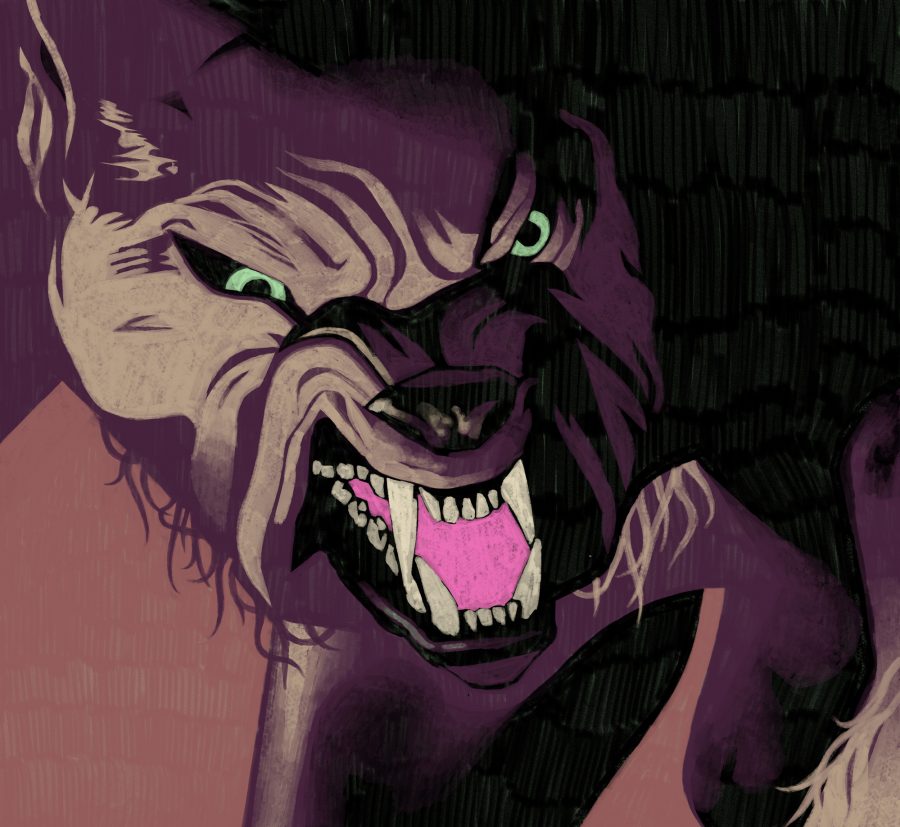
Directed by John Fawcett
A teenage girl’s body is weird, but it shouldn’t grow a tail, spurt fur and create an insatiable bloodlust. Usually. On top of being bullied, the Fitzgerald sisters have to deal with Ginger turning into a werewolf after being unexpectedly attacked by one. A perfectly gross meld of the teen and horror movie genres, Ginger Snaps is a sibling love story and an ode to teenage girls who don’t fit in. Anna Bogutskaya
Directed by Ryūsuke Hamaguchi
Running at 317 minutes, Happy Hour is by some way the longest film on this list – and yet not a moment is wasted. Its scale in screentime is scarcely matched in scope, focusing on four middle-class women in Kobe, Japan with several languorous scenes in restaurants and theatre groups reminiscent of Jacques Rivette’s modernist epic, Out 1. As director Ryūsuke Hamaguchi grows in reputation, this will forever be his magnum opus. LC
Directed by Don Herzfeldt
Don Hertzfeldt is the most hardworking filmmaker on the planet. Not only does he write, direct, produce, animate and distribute his films pretty much single-handedly, they are without exception works of rare, transcendent beauty. Hertzfeldt’s lone feature to date film remains his crowning achievement: following the lonely adventures of a stick man named Bill, it’s a brutally human portrait of depression and social isolation that steadily rises to a crescendo of heartbreaking, ecstatic glory. Tom Huddleston
Directed by Richard Kelly
The mind of a teenage boy can be a perverted explosion of hormones and rage, but also a place that spurts kindness and curiosity. Richard Kelly’s cult classic grasps that duality with a character whose fiendish urges and frustrations at society guide him on a superhero origin story of sorts. The daring narrative combines apocalyptic anxieties, pop culture obsession and state of the nation satire while also powerfully expressing the pain of puberty. Katherine McLaughlin
Directed by Julia Ducournau
Only Julia Ducournau could give us a feature debut that blends cannibal body horror, pronounced corporeality and adolescent sexual awakening, all while asking, “are you your body, or is your body you? And what does that mean in terms of identity?” Raw disavows both glamourised and demonised depictions of monstrous femininity, instead honing in on the protagonist’s coming of age and her voracious, insatiable hunger for flesh. Marina Ashioti

Directed by Michelangelo Frammartino
You’ll notice there aren’t a great many documentaries in this list, as the notion of filming and shaping reality almost falls between two stools in the IP debate. What we do have is Michelangelo Frammartino’s wondrous Le Quattro Volte, a playful quasi-documentary about goat herding in Calabria that constantly calls into question the very methods of its manufacture, asking whether objective truth in filmmaking is any kind of achievable goal. DJ
Directed by Tsai Ming-liang
Every film made by Taiwanese director Tsai Ming-liang would be in contention for his best, but one likely to be hovering in the top tier for most fans of the director’s corpus of glacially-paced wonders is Stray Dogs. It’s a simple portrait of a poverty-stricken family searching desperately for money and food, and in the end all they’re able to sustain themselves with is art. This film is one of the great examples of how long takes can slowly subvert perception of an image or an action into something transcendent. DJ
Directed by Céline Sciamma
Long live the matriarchy of Céline Sciamma! Petite Maman is the culmination of her cinematic skill with yet another unique perspective on female love that clocks in at just 82 minutes. Existing in a liminal, ambiguous space between home and forest, Sciamma’s film turns a delicate exploration of grief and depression into child’s play. It is a paragon of simplicity and authenticity that will make you tear up and want to hug your mum, and more cinema should aim for that. FS
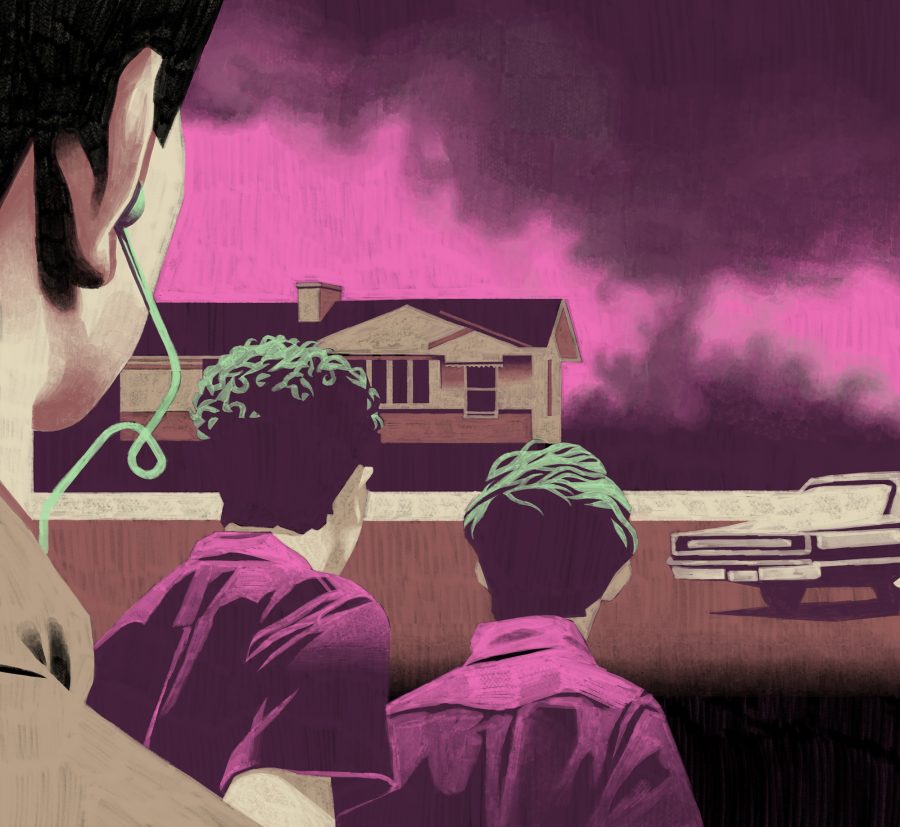
Directed by Joel and Ethan Coen
Larry Gopnik (Michael Stuhlbarg) can’t catch a break. With his son’s Bar Mitzvah approaching and tenure just out of reach, his wife announces she’s leaving him for Sy Ableman (Fred Melamed). The Coens’ darkly comedic take on their midwestern adolescence bridges reality and fiction into a profoundly Jewish and speculative work of faltering faith. When everything is going wrong, what does it mean? It means the universe laughs at our suffering. And so are we. BZ
Directed by Hou Hsiao-hsien
Though Taiwanese New Wave lynchpin Hou Hsiao-hsien is considered to have one of the greatest bodies of work of any director, living or dead, this current focus on original storytelling means that his regular screenwriter, Chu T’ien-wen, should also get her dues. She penned this shoegaze-y character study of a relationship in quiet freefall, and a young woman’s decision to break free of a toxic romance in the city and return to her rural roots. As with all of Hou’s films, the radical, elliptical telling of the tale is just as important as the tale itself. DJ
Directed by Kenneth Lonergan
Six years on the shelf is rarely a good look, but in the case of Kenneth Lonergan’s second feature – shot in 2005, released in a hobbled cut in 2011 – the reasons for the delay couldn’t be clearer: the director refused to budge. Quite right, too. His definitive three-hour cut is a discursive, achingly empathetic study of teen privilege and misguided activism, with a fierce central turn from Anna Paquin. TH
Directed by Noah Baumbach
A picaresque tale of a freewheeling young woman under pressure to take life more seriously, Noah Baumbach’s black-and-white, New York-set Frances Ha cemented Greta Gerwig – its luminous star and co-writer – as a major voice of her generation. The film is a loving homage to the French New Wave while capturing the liberation and the loneliness of life in a big city with wit, humour and heart. Laura Venning
Directed by Peter Strickland
It’s quite a feat to make squashed fruit and vegetables the gory centrepiece of a film, but Peter Strickland pulls it off with ease in his disturbing deconstruction of sound, violence and cinema. It’s a celebration of pioneering experimental composers, foley artists and sound engineers that addresses sexual harassment in the film industry, while also toying with giallo horror tropes and culture clashes with a nightmarish intensity and dryly comic edge. KM
Directed by Paweł Pawlikowski
Another nun film caught in conflict between the sanctity of faith and the grim realities of the world around her? Not quite… Paweł Pawlikowski’s 2013 Oscar-winner Ida is a simple yet deeply profound story of self-discovery. Impeccably lit, meticulously composed and bolstered by superb sound design and an exceptional use of static black and-white cinematography, the distinctive artistry of Ida makes it a mesmerising slice of transcendental cinema. MA
Directed by Kleber Mendonça Filho, Juliano Dornelles
As it reaches its delirious climax, Bacurau gorges in the ecstasy of the avenged colonised. Knives held by brown hands cut through white skin and bullets blast through rusty weapons stained by the dried sweat of those who once fought for the same ravished land. It’s a thrilling, precise exercise in historical rereading that translates Brazilian politics through a pulsing, genre-bending homage to Glauber Rocha and John Carpenter. Rafa Sales Ross
Directed by Kirsten Johnson
Overturning documentary convention and challenging traditional ideas of film authorship, Kirsten Johnson’s alchemical Cameraperson creates an extraordinarily intimate, if oblique narrative out of wildly various footage. Life, death and ethics hang in the balance with each carefully placed sequence, all of which were shot by Johnson during her impressive 25-year career as a documentary cinematographer. This story, however, is all hers. She says: “I ask you to see it as my memoir.” Pamela Hutchinson
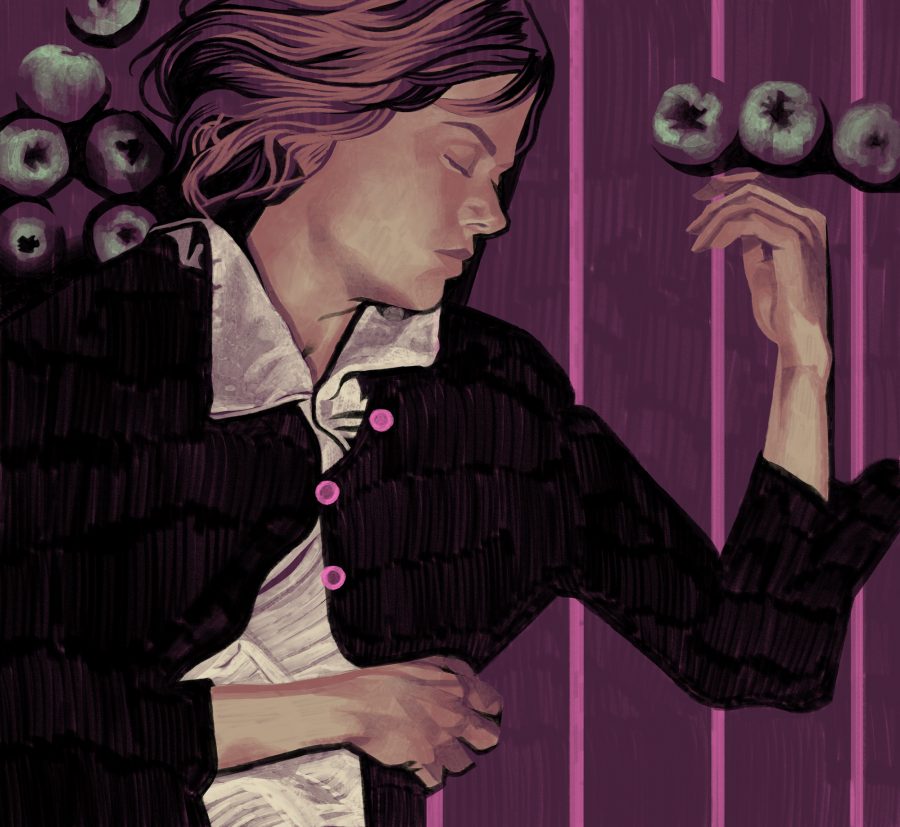
Directed by Lars von Trier
Films shot entirely on bare soundstages often make it difficult for viewers to suspend disbelief. Yet the unadorned set of Lars von Trier’s cinematic triumph Dogville potently immerses us into the underbelly of smalltown America. It’s a dog-eat dog world, and when a runaway with a seemingly poised calm (Nicole Kidman) seeks refuge in Dogville, she finds herself at the mercy of the townsfolk. Von Trier strips it down to the bare essentials of storytelling, with the enchanting performances of his star-studded cast taking centre stage. MA
Directed by Kenneth Lonergan
Filmed on location in and around the eponymous Massachusetts town, Kenneth Lonergan’s laconic drama about a grief-stricken handyman is at once universal in its thematic scope and singular in its depiction of the tight-knit blue-collar community that anchors the story. Interestingly, the initial premise originated not with Lonergan but noted New Englanders Matt Damon and John Krasinski, with the former at one stage planning to direct and star in the lead role. AW
Directed by Paul Thomas Anderson
Paul Thomas Anderson’s disquieting portrait of postwar ennui follows troubled veteran Freddie Quell (Joaquin Phoenix) as a sexually voracious loner who succumbs to the charms of charismatic cult leader Lancaster Dodd (Philip Seymour Hoffman). Together, the two men form a perverse odd couple, quietly throbbing with the kind of unrealized craving begotten from early-twentieth century repression. Their story shapes a singular, timeless narrative of belonging and desire, with Anderson’s craftsmanship firing on every cylinder. BZ
Directed by Wes Anderson
“I’ve had a rough year, dad.” If The Royal Tenenbaums remains Wes Anderson’s most enduring film it’s because it brought his rich, imaginative world of dysfunctional families, vibrant tableaux and deadpan delivery to the mainstream. It also remains his most sincerely emotional film. Among a brilliant ensemble, three child prodigies grow into three disaffected adults trapped by the nostalgia of their early brilliance, soundtracked by an equally nostalgic mix of Nico, Paul Simon and more. LV
Directed by Lars von Trier
A family gathered in a castle for a lavish wedding crumbles under the very same sky where a rogue planet aptly named Melancholia makes its way towards Earth. Lars von Trier’s spin on the disaster movie is as nihilistic as one would expect and as close as cinema can get to encompassing the all-consuming dread that accompanies both a tangible threat of extinction and the unyielding swamp of depressive catatonia. RSR
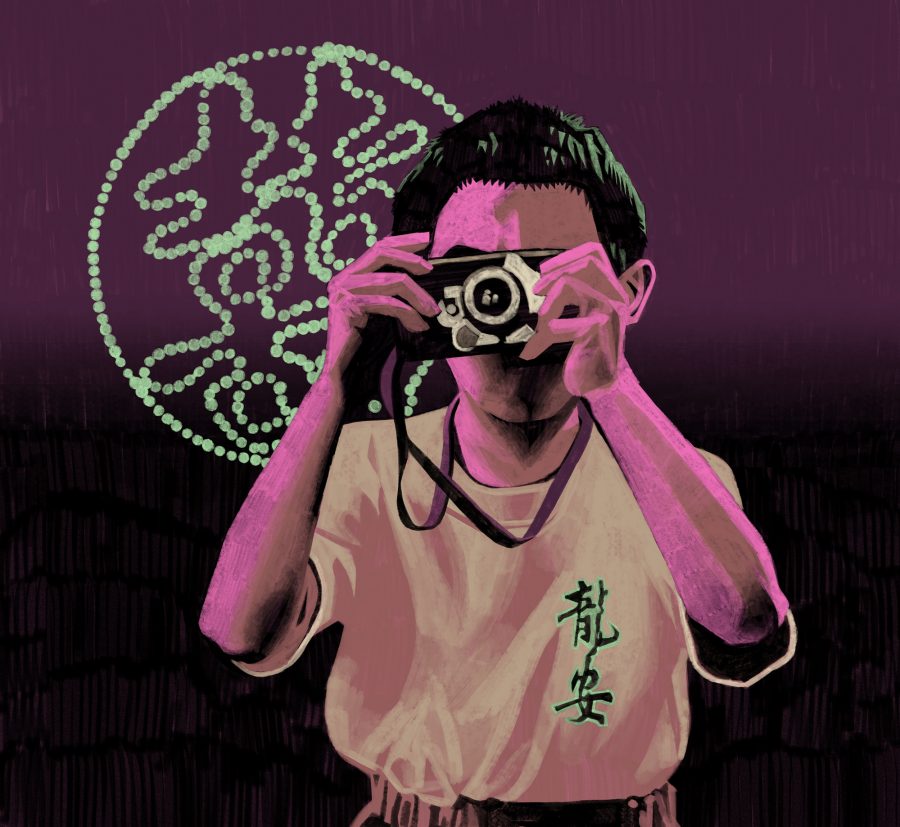
Directed by Edward Yang
The late, very great Edward Yang was taken from us far too soon at the age of 59, and his 2000 film Yi Yi (aka A One and a Two…) ended up being his untimely swansong. But what a swansong it is – an intimate family saga which splits its focus between the emotionally unfulfilled members of a middle-class Taipei family, whose journey of self refelction is sparked by a need to talk to their comatose grandmother. It’s soap opera supercharged with levels of profundity, insight and melancholic poetry seldom seen in modern movies. DJ
Directed by Tsai Ming-liang
Made well before the streaming era, Tsai Ming-liang’s Goodbye, Dragon Inn presciently eulogises the communal aspect of the cinema. That this tribute shows theatre patrons doing anything but paying attention to the movie playing is both the film’s deadpan punchline and its loving affirmation. Tsai’s minimalism dissolves barriers of reality, making spectators of actors and dramatised characters of viewers as all resemble ghosts seeking connection to art and each other. JC

Directed by Mia Hansen-Løve
Few films are as immersive as Eden. Directed by Mia Hansen Løve and inspired by her brother Sven’s career as a DJ, it’s best described as an experience. From acid-fuelled raves in neon caverns to house parties and Paris bars, Hansen Løve recreated the bygone era of her youth in all its messy glory. Eden also boasts an epic soundtrack centred on Daft Punk, and a pitch-perfect dissection of Paul Verhoeven’s Showgirls. LC
Directed by Richard Linklater
Exactly nine years after meeting on a train in Before Sunrise, Celine and Jesse reunite, accidentally on purpose, in Paris. They are older, more cynical and romance-weary, but the memory of their day-long, puppy-eyed love affair in Vienna resurfaces intensely when they meet again. During 80 perfect minutes, they walk and talk, about everything and nothing. In an agonising cliffhanger that wouldn’t get resolved for another nine years, they decide whether to stay together. AB
Directed by Apichatpong Weerasethakul
The fiery antagonisms of the science vs religion debate are captured with pin-drop tranquillity in Apichatpong Weerasethakul’s ambient portrait of a rural Thai hospital that’s not dissimilar to one the director’s parents worked in. Workplace romances, ghostly emanations and Buddhist monks requiring urgent dental work make up this breezily comic pathwork of wistful remembrance and mischievous formal experimentation. Also: Best. Ending. Ever. DJ
Directed by Céline Sciamma
“Not everything is fleeting. Some feelings are deep.” It’s near impossible to convey the transcendent poetic genius and haunting elegance of Céline Sciamma’s magnum opus. Unfolding on a desolate island in 18th-century Brittany, every frame is a Rembrandt; a lyrical dissection of desire. Few filmmakers can depict yearning and the feminine gaze quite like Sciamma, whose sensory investigation into passion and the complex web of looking is as effortless as it is intoxicating. MA
Directed by Terrence Malick
With symphonic grandiosity and import, Terrence Malick’s grand philosophical inquiry interweaves the story of a 1950s Texas family with that of the universe’s origins, heralding the miracle of creation in both. Overwhelming? Well, naturally. Synthesising sound, imagery, and narrative in all their evocative power, Malick marries his mastery of the form to his boundless ambition and a fierce sense of soul in order to induce transcendence and touch the cinematic sublime. Isaac Feldberg
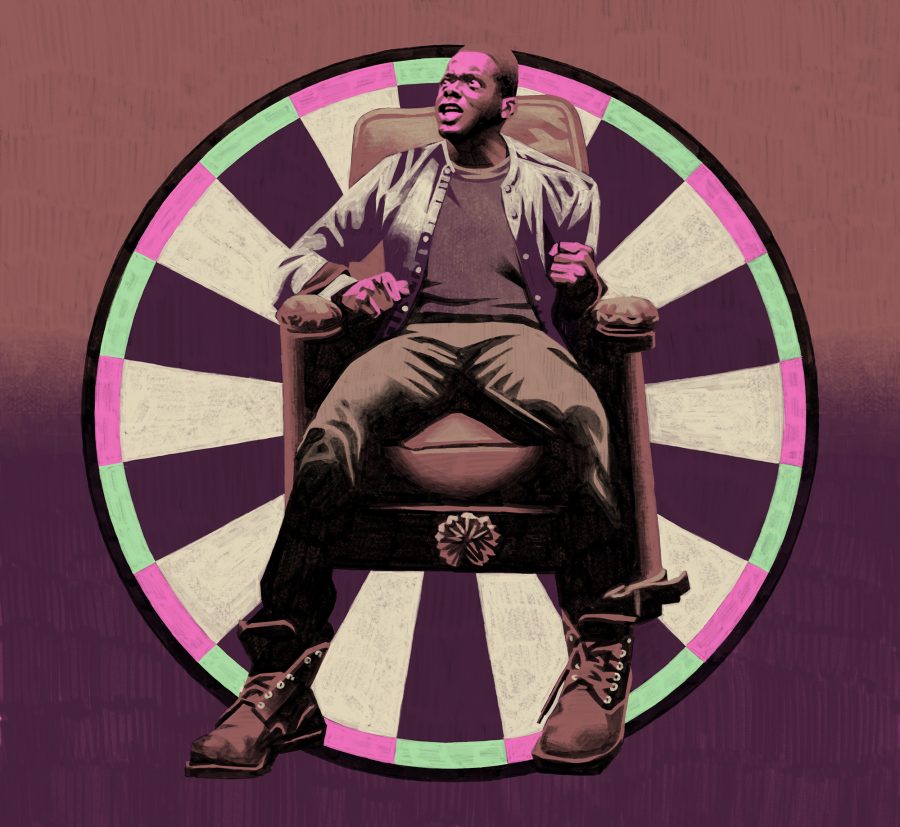
Directed by Jordan Peele
The game-changer that no one saw coming. Jordan Peele’s chilling masterwork about a Black man who goes to meet the family of his white girlfriend upended the horror genre and loaded it with impeccable symbolism and satire. It delivered a much-needed skewering of liberal racism and gifted pop culture with the concept of ‘The Sunken Place’. A gold standard, it’s now near-impossible to combine race and horror without inevitable comparison. CB
Directed by Paul Thomas Anderson
Anderson’s 2017 film, ostensibly the result of a series of comic text messages with his old pal Daniel Day-Lewis, arrived with less fanfare than either 2012’s The Master or 2014’s Inherent Vice. Yet, according to our poll, it’s the most well-loved of his eccentric event movies, telling of a (literally) toxic love affair set in the stuffy halls of a midcentury London fashion house run by domineering perfectionist, Reynolds Woodcock. It’s one of the director’s most low-key, poised and elegant movies to date, and may just be his masterpiece. DJ
Directed by Paul Schrader
The film that launched a million social media memes is also one of the finest directorial works of the man who is known for being one of Martin Scorsese’s most vital creative wingmen. Ethan Hawke locks into career-best mode as a faithless pastor who ponders the option of taking violent action against those who are wilfully destroying the planet. As usual for Schrader, the pastor’s plans are scuppered by the pressing desire to save a holy innocent who has recently entered into his circle. DJ
Directed by Michel Gondry
This is a sci-fi romance of unusual eccentricity and force, and also a defiantly humanist work about the futility of being able to cultivate a human connection. We all yearn for love, that most ineffable, impermanent of things; knowing this, writer Charlie Kaufman and director Michel Gondry map intricacies of memory and its loss as an endless labyrinth, through which the characters in this film search and stumble, beholden only to the pursuit of love as itself a reality deeper than truth. IF
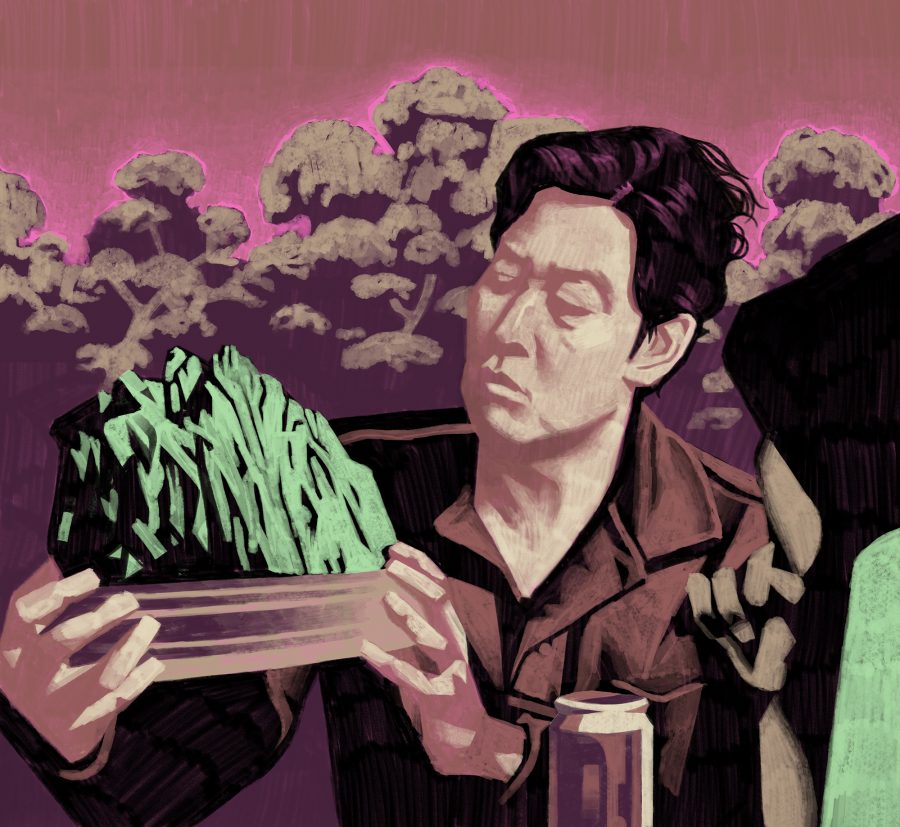
Directed by Bong Joon-ho
When Parasite made history as only the second film ever to win both the Palme d’Or and the Academy’s Best Picture, Bong Joon-ho made a seismic impact on the world cinema landscape. At the core of this hyper-real social satire steeped in spatial metaphor lies an intricately woven exploration of capitalism and class warfare told with deliciously genre bending unpredictability. Bong’s films are truly in a world all of their own. MA
Directed by David Lynch
Mulholland Dr was an early 21st-century masterpiece, unlike anything we’d seen before, and now it’s impossible to imagine cinema without it: the shadowy bogeyman lurking behind every boilerplate Hollywood thriller or romance. From the distinctive, disruptive mind of David Lynch, it is a queer blend of film noir and tinseltown lore, in which dreams play out like classical ‘reality’ and the truth is revealed, but only just, in a non-linear nightmare. PH
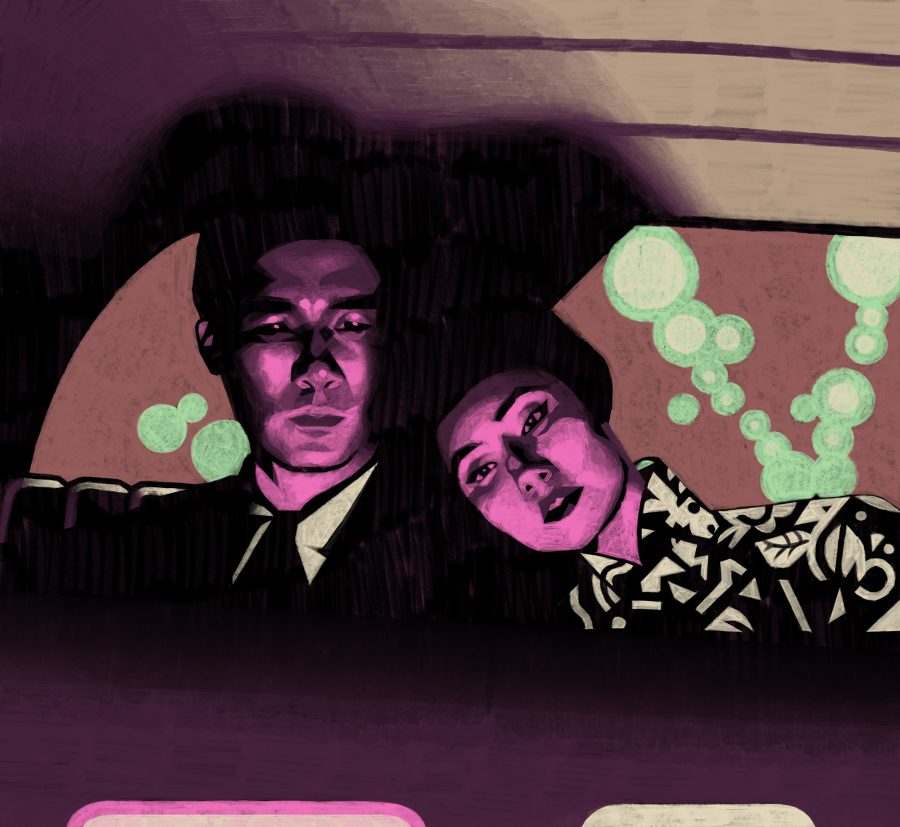
Directed by Wong Kar-wai
Told in exquisite vignettes awash with deep reds and dusky greens, a sedate yet heightened story of repressed yearning unfolds in Wong Kar-wai’s In the Mood for Love. After the breakout success of the kinetic Chungking Express and grittier tragedy of Happy Together, the initial response to In the Mood for Love was more muted. Yet two decades later it has rightfully been enshrined as Wong’s masterpiece. Set in 1962 in British Hong Kong, Tony Leung and Maggie Cheung exude captivating beauty and grace as neighbours in an apartment block drawn together as they realise their spouses are having affairs with each other. The agony of their own unresolved desire is palpable; time slows down when they meet as if they’re desperate to cling on to every moment before it’s lost to the past. A major influence on countless filmmakers and with one of the most quietly devastating endings ever, their brief encounters are impossible to forget. LV
Published 15 Apr 2022
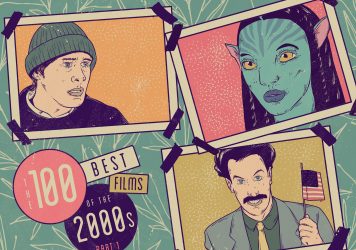
Part one of our bumper survey of the noughties, featuring Avatar, Borat! and Requiem for a Dream.
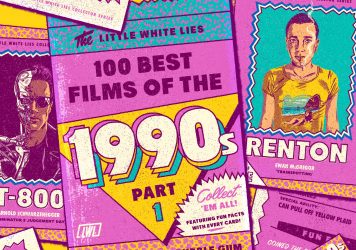
Our ’90s countdown kicks off with movies from Tim Burton, David Lynch and Hayao Miyazaki.

Find out how Little White Lies contributors voted in our critical survey of recent non-IP cinema.